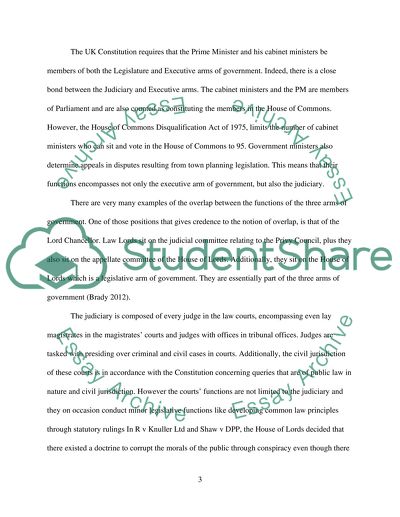Cite this document
(“The absolute Separation of Powers is not practical neither achievable Essay”, n.d.)
The absolute Separation of Powers is not practical neither achievable Essay. Retrieved from https://studentshare.org/law/1682106-the-absolute-separation-of-powers-is-not-practical-neither-achievable-there-is-always-going-to-be-some-degree-of-overlap-evaluate-the-above-in-connection-with-the-uk-constitution
The absolute Separation of Powers is not practical neither achievable Essay. Retrieved from https://studentshare.org/law/1682106-the-absolute-separation-of-powers-is-not-practical-neither-achievable-there-is-always-going-to-be-some-degree-of-overlap-evaluate-the-above-in-connection-with-the-uk-constitution
(The Absolute Separation of Powers Is Not Practical Neither Achievable Essay)
The Absolute Separation of Powers Is Not Practical Neither Achievable Essay. https://studentshare.org/law/1682106-the-absolute-separation-of-powers-is-not-practical-neither-achievable-there-is-always-going-to-be-some-degree-of-overlap-evaluate-the-above-in-connection-with-the-uk-constitution.
The Absolute Separation of Powers Is Not Practical Neither Achievable Essay. https://studentshare.org/law/1682106-the-absolute-separation-of-powers-is-not-practical-neither-achievable-there-is-always-going-to-be-some-degree-of-overlap-evaluate-the-above-in-connection-with-the-uk-constitution.
“The Absolute Separation of Powers Is Not Practical Neither Achievable Essay”, n.d. https://studentshare.org/law/1682106-the-absolute-separation-of-powers-is-not-practical-neither-achievable-there-is-always-going-to-be-some-degree-of-overlap-evaluate-the-above-in-connection-with-the-uk-constitution.


